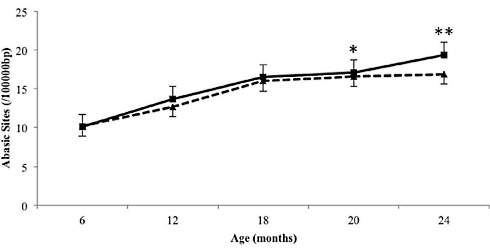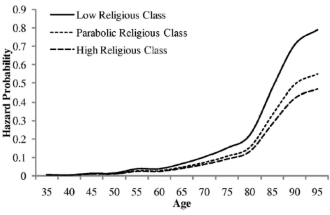|
Definition: "An ergogenic aid is any substance or phenomenon that enhances performance "
|
|
||||||||
13.09.2014 |
|
|
Live 12 percent longer on a low-glycaemic slow-carb diet
If you give elderly mice a low-glycaemic diet for the rest of their life they live 12 percent longer than mice given standard food. Researchers at Deakin University in Australia write about this in Longevity & Healthspan. Their animal study suggests that a low-glycaemic diet delays aging at the molecular level.
Low glycaemic
The Australian researchers gave middle-aged lab mice aged 20 weeks food with a glycaemic index of 27 for the rest of their life. A control group was given standard feed with a glycaemic index of 70. To give you an idea: bread, noodles and croissants have a glycaemic index of about 70; apples, wholemeal pasta and quinoa have a glycaemic index of just over 30.
Longer life
When the mice were 24 months old the ones that were on the low-glycaemic diet [squares] reacted better when given glucose than the animals in the control group [triangles].
The researchers found less DNA with abasic sites in the cells of the elderly mice in the low-glycaemic group [triangles] than in the cells of the control group [squares]. Abasic sites are where the DNA has molecular damage. These increase as a result of aging.
The researchers also found less 8-OH-2-dG-DNA in the low-glycaemic group. This is also damaged DNA, and this kind of damage also increases with aging.
A classic way of measuring molecular aging is to measure the length of the telomeres in the DNA. The shorter they are, the further the aging process has progressed. The low-glycaemic diet had no statistically significant effect on telomere length however.
Conclusion
"However it is possible to speculate that consumption of a low glycaemic index diet late in life still has beneficial health effects and it may extend lifespan, although the effect may not be as dramatic as an intervention earlier in life. The extension of life may not represent a significant number of years lived but rather an improved quality of life or healthspan."
Source: More: Archives:
|
|
|||||||||||||||








